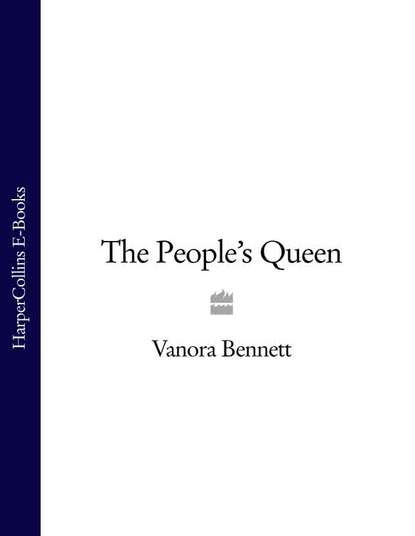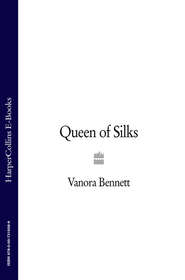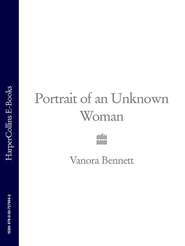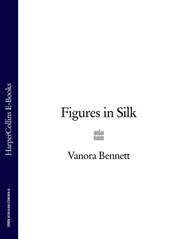По всем вопросам обращайтесь на: info@litportal.ru
(©) 2003-2024.
✖
The People’s Queen
Настройки чтения
Размер шрифта
Высота строк
Поля
Before she knew what she was doing, Alice remembers, she found her mouth open and herself piping up, pert as anything: ‘Well, it wasn’t sent to kill me. I was born right in the teeth of it, and I survived,’ and she was grinning up at the pair of them, flashing her teeth, all bravado. Then, suddenly realising what she’d done by interrupting the King’s conversation, she stopped in terror. Both men were staring curiously at her. She sensed William of Windsor’s wide-open eyes were a signal to stop. But she pushed on. Nothing ventured, nothing gained, she told herself. Seize the day. She put the grin back on her face, but she could hear her voice shake a little as she continued, with a smile: ‘…and I’ve lived to tell the tale through another bout of it, too…as we all have, with God’s grace. Who’s afraid of the Mortality?’
She very nearly went on to say the next things old Aunty Alison always used to say whenever she scoffed at the plague, back at Aunty’s kiln where Alice grew up. ‘It’s an ill wind that blows nobody any good,’ that hard old voice echoed in her head. ‘God’s curse for some; God’s blessing for others. So many people gone, but we’re still here, thank God, and they left it all behind for us, didn’t they? Just waiting to be picked up. The streets are paved with gold, if you only know where to look. Fortunes to be made, a king’s ransom many times over. All just waiting for anyone with a head on their shoulders to come along and take it.’ But fear overcame her again. She gulped and stopped. Then there was a long pause, during which Alice wished the earth would open and swallow her.
She’d always remember the way Edward’s eyes, eventually, softened and his great golden mane started to shake as he laughed. ‘Then you must be one of the very few of my subjects to be so blessed by God, little miss,’ he said, and his great lustrous eyes sparkled at her until she felt warm all over. He added, with a laugh that included her, ‘Or by the Devil, of course, who knows?’ and the look in his eyes told her she was allowed to laugh too. In the quietness that followed, he leaned forward, saying, very casually, yet with great courtliness, ‘Tell me, to whom do I have the honour…?’
She was so lucky in that first conversation with Edward.
At the time, she had no idea that Edward chafed as much as she did at the notion that the Mortality was divine punishment, and that there was nothing to do but lie down and die when it struck. Later she found out that the King of England had lost two children to the sickness himself – in that first bout of it, about when she, Alice, was born. But Edward was so reluctant to stay shut away from the world that, after a fretful winter in the relative safety of Oxford and King’s Langley, he came out at the height of the plague. That April, on St George’s Day, he forced hundreds of terrified knights to risk their lives coming together at his new castle at Windsor, for the first great meeting, at the giant Round Table he’d had built in homage to King Arthur, of the Order of the Garter. Edward prides himself on defying death. (Later still, once Alice and Edward were close enough for whispering, he laughed ticklishly in her ear with his story about how his ancestor, Count Fulke the Black, had married the daughter of the Devil, and about Countess Melusine shrieking and flying out through a window of the chapel, never to be seen again, when she’d been forced to go to Mass. Alice could see he very nearly believed he was descended from the Devil. It explained so much about his devil-may-care bravery, and about his luck, too. The King’s wind, they used to call it, the wind that blew him straight to France, and victory, every time he set sail across the Channel.) Of course he liked her death-defying talk, right from the start.
The chariot’s struggling over wooden planks to a platform.
Alice gathers the folds of her robe as the door opens. She can see Edward waiting for her on the dais, smiling in the distance. But Duke John is closer, on horseback, right behind her in the train of noblemen. To her pleasure, it’s he who dismounts and, taking the place of the groom, comes to her door to hand her down.
‘Jewels,’ her new friend says in her ear, with the beginnings of a smile and the beginnings of a compliment. ‘Beautiful ones, too.’ Then, in a different voice, looking suddenly taken aback: ‘Oh…but…isn’t that my mother’s necklace?’
‘Yes…your father got it out for me last night,’ Alice replies, feeling slightly apologetic all of a sudden, but trying not to sound it. His mother’s jewels – perhaps she should have thought? But it only takes a moment for blessed defiance to come back to her. She’s not stealing the jewels, for God’s sake, she tells herself. His mother’s been dead for years. Why shouldn’t she enjoy them? ‘And the other rubies. The rings…the bracelets…’ She can’t stop herself stretching out her right hand as she says the words.
‘By way of an apology,’ she adds, when the Duke still doesn’t say anything.
How anxious Edward looked, at the end of last evening, with the noise of the dance still going on below, when he came to her, with a sleepy scrivener trying to suppress a yawn bobbing respectfully in his wake. ‘I regret…’ He stumbled over the words, clinging to her hand, as if he feared she might vanish, like the Countess Melusine, leaving him cold and lonely in his last days. ‘I very much regret…a spirited woman, Joan. Too spirited at times.’ He paused. She waited. No point forgiving too fast. After a second, he thrust the letter at her: an order to Euphemia, another ex-demoiselle and now wife to Sir Walter de Heselarton, Knight, who’s lodged somewhere here too, that ‘the said Euphemia is to deliver the rubies in her keeping to the said Alice on the receipt of this our command’. Alice looked up, only half believing the words dancing on the page, straight into those pale old eyes fixed on hers, mournful, humble, imploring as a dog’s, begging for forgiveness.
She blurted, ‘You’re giving me the jewels? Really?’ This man loves me, Alice Perrers, she thought, with a sunburst of gratitude, trying not to notice the slack skin or lean neck or liver spots. His love has made me what I am.
‘Oh, only the rubies,’ Edward replied quickly, playful again, smiling with relief, but still not giving too much away. (This is why Edward’s been so good at making common ground with the merchants, she knows; because he enjoys haggling as much as they do, as much as she does. He will do till his dying day.) Forgetting the old-man’s skin, looking into his laughing, knowing eyes, she put her arms around him. ‘Only the rubies, my dear,’ he repeated, and kissed her.
That’s what she should be teaching this Duke, who hasn’t had to have dealings with merchants, who as a younger son has been left for longer in the sunlit playground of chivalry and pageantry in which princes once existed, who hasn’t had occasion to think about the realities of modern life. He’ll need to now, if he’s going to make his play for power. He’ll have to learn. Drop the ceremonials. No one owes you everything, just because of your noble blood. Pay your way into alliances, if you need those alliances. Do what you need to do. Learn to see things for what they are.
But he’s silent, still; perhaps he’s taken some terrible princely offence at humble Alice touching his mother’s jewels? Perhaps he’s too stiff-necked ever to change?
She tries again. She murmurs, with a hint of a twinkle, ‘I think your father chose the rubies for the colour of the wine.’
At last, he seems to decide it’s all right. He nods, and smiles straight into her eyes. ‘They suit you,’ he says after a moment, making her a dignified bow, and, after another pause, as if he’s looking for the right phrase, full enough of gentillesse: ‘She behaved badly. My father did right. I’d have done the same myself.’
Arm in arm, they begin stepping cautiously towards Edward. There’s a warmth inside Alice, and it’s not just from the lean warmth of the arm in hers.
‘Did you enjoy the ride through London?’ she hears him murmur politely at her side. Perhaps he’s curious. He must have heard the Londoners muttering, too, from where he was, right behind her in the procession.
She nods, as nobly as she can. Hardly thinking, she replies, ‘Of course.’ Then she stops. If they’re to be allies, she should learn to be as honest with him as she’ll expect him to be with her. So she dimples up at him and flutters her free hand. ‘Well, no…to tell the truth, I didn’t, really,’ she admits candidly. ‘They didn’t like me much as Lady of the Sun, those Londoners, did they?’
He actually shivers. It’s not just for her benefit; his revulsion for the common people of London, tramps, pedlars, fishwives, and the richest merchants in the land alike, shudders right through him, something he feels in every inch of his body and doesn’t mind her knowing. ‘Terrible people,’ he says. His voice is tight. ‘Howling like that, at a royal procession, the savages. They should be taught a lesson. Brought under control…flogged.’
God be with them all, she thinks, suddenly buoyant again (though she does appreciate the Duke’s sympathy). They’re right, in a way, those Londoners; she agrees, she shouldn’t be out here pretending to be Queen Philippa and Princess Joan rolled into one scarlet silk package. She was asking to be called grave-robber, wearing the Queen’s necklace out here. She won’t do it again, because she enjoys London. She likes the way the London merchants work: cautiously, by consensus and committee; and purposefully, without the empty showing-off of the court. She shouldn’t forget that. She won’t next time. She’s learned her lesson.
So she shrugs, and grins invitingly, twisting her head sideways like a bird on a bush to include him in her merriment. ‘Oh, I don’t know,’ she differs blithely. ‘They’re often right, in London. I probably should have kept a lower profile. Anyway, they’re so good at what they do – making money that can help you. You have to forgive them their outspokenness if only for that, don’t you?’
‘I can’t be doing with them,’ he mutters, shaking his head. There’s a stubborn look in his eyes, but she now thinks she sees – what, bewilderment? Interest? there too. ‘Who do they think they are?’
She murmurs enticingly back: ‘…though London, and its wealth, could be a great support to you, if you could only learn to accept the way the Londoners are.’ He turns his eyes to her. He wants to know, she sees. He just doesn’t want to admit it. She whispers, ‘I could show you how.’
He’s definitely interested now. He stops walking. So does she.
‘How?’ he says, though he can’t keep the scepticism out of his voice. ‘They don’t like me, any more than I like them.’
The idea comes on her like a flash of lightning; she hears the words drop from her lips even as she’s thinking it. ‘That’s because you need some good men who are loyal to you in the big London jobs,’ she replies quickly. ‘Londoners spend so much time talking to each other, and so much time listening. You need a talker inside the walls, who can influence them; someone who can quietly show them things from your point of view.’
This is how to repay the debt of honour she incurred last night. She’s breathless with the cleverness of it. She’s thinking of the vacant job checking that Londoners aren’t skimping on their payments of wool tax, England’s biggest export. It’s the most important government job in the City, requiring diplomacy, financial know-how and intimate knowledge of both merchant and court life.
‘For instance,’ she goes on, startling even herself, ‘You need a man you can trust in the wool comptroller’s post.’ She tightens her grip on the Duke’s arm. ‘And I know who.’
THREE (#ulink_b5b49a1a-b0ec-5c8e-9e27-dbde0afcb987)
Master Geoffrey Chaucer, newly appointed Comptroller of the Customs and Subsidy on Wool, Sheepskins and Leather for the Port of London, can tell from the stillness and the shimmer on the water that it’s going to be another hot June day.
He’s early. It’s not yet properly light. But then he’s nervous.
Any minute now he’ll be joined on the jetty at Westminster by his companions for his first day in his new job – an old friend and a new. Meanwhile, all he can do is wait and listen to the bells ring for Lauds behind him in the royal village.
Soon, he knows, there’ll be pandemonium at the palace. All the servants will be up, running around, sweeping, carrying pails and boxes and bags and piles in and out of every imaginable gate and doorway, feeding horses or killing fowl for the table, smelling the bread smells rising from the ovens. The King’s court is to move to Sheen in a day or two, now that the mystery plays and celebrations of Corpus Christi are over. By St John’s Eve, not a fortnight hence, it’ll be off again, having eaten its many-headed way through the local food supplies, for a midsummer interlude at Havering-atte-Bower. Chaucer’s always liked the peace of Havering. He pulls his robe around his shoulders and steps on to the jetty, wishing he could feel more whole-heartedly happy to be leaving behind that brightly coloured wandering life.
It seems no time at all since Alice Perrers materialised beside him at one of the masques she so energetically organised for her week of spring festivities (one in which the players on the Passion wagon were re-enacting a Crusade, with piercing cries and dramatically flowing crimson blood and a real fire engulfing the mock-castle as Saladin dropped writhing to his death. An incongruous background for conversation, he remembers thinking). She slipped a confiding arm through his, and whispered, with her eyes all persuasively lit up, that the King was minded to give him high Crown office in the City, if he was minded to accept…?
He couldn’t believe it at first. This is what Philippa most chides him for – failing to seek out preferment – and here it was coming at him without his even trying, in the person of the King’s favourite, this chirpy little barrel of fire, who was holding on to his arm and grinning slyly up at him as if they were old friends sharing some tremendous joke.
But going back to the City – even to do this responsible job, which will certainly earn him the King’s favour if he’s successful – seems in so many ways like a step back into his past that it’s thrown him into inner turmoil. This turmoil has gone with him through every one of the meetings with government officials that Alice Perrers has been whisking him through in the past few weeks. Every imagining he has of a future waking up to the cries of the City’s streets, and walking through those too-familiar lanes to a job among men he knew as a child, is accompanied by a prickly cloud of difficult memories of the other life he’s become accustomed to, these past twenty years.
He might see more of Philippa if he’s to be in London all the time – and Alice Perrers has made plain he will be expected to be at his desk at the Customs House every day, checking the merchants’ accounts. Philippa’s Castilian mistress, the wife of the Duke of Lancaster, likes her long stays at the Savoy (and who wouldn’t? Chaucer thinks, as the memories of those bright avenues and splendid halls fill his mind – another soft little knife in his side, another bittersweet sigh). The Lancastrian palace on the Strand, where Philippa spends so much of her time working as demoiselle to the Duchess, is only a boat ride away. Now, seeing Philippa is a mixed blessing at the best of times, but what most concerns Chaucer is that he might also have more time with his children, if he’s always in London, than he has while he’s been attached to the King’s court, as one of thirty esquires kept at my lord’s side to be quietly useful, plunging up and down the land on that endless crusade of cushions and silver-gilt cups, not necessarily going the same way, at the same time, as the Duke and Duchess of Lancaster’s court, or seeing nearly enough of little Thomas and Elizabeth.
That’s a good part of what’s made his eyes glitter at the prospect of this new job. What has made Philippa’s eyes glitter is learning of the extra pension he’ll be getting now for the Customs post, added to the ones the Duke of Lancaster (a better master by far than the tricky old King when it comes to payment) has already secured for both of them for their service to various members of the royal family. Between them, their income will now add up to nearly sixty pounds a year. For the first time, they’ll be comfortable by anyone’s reckoning. Philippa knows, of course, that she’ll be expected to do a little visible wifely duty in return – attending City dinners with him, from time to time, that sort of thing. But he knows her, and her suspicion of merchant ways, too well to expect that she’ll do more than the bare minimum. Still, he must be grateful. She’s told him, gently enough, that although she won’t live with him in the City (he couldn’t expect her to give up her life at court for merchants, after all) and she won’t hear of Thomas being taken away from court where he does lessons with the Duke of Lancaster’s daughters, and being sent instead to St Paul’s almonry school in the shadow of the cathedral, to mix with the sons of merchants, (which is where Geoffrey Chaucer got his book-learning), she and the children will, at least, spend holidays with him in London. At least sometimes. He’s almost sure she’ll keep her word. At least, she will if she isn’t in a mood, as she too often is, to whisper to the children that their maternal de Roët blood is nobler than their father’s, and to have her own coat of arms, not his, embroidered on their clothes.
Geoffrey Chaucer sighs. There’s no point in false optimism. He knows that really. She’s turned the children against him. More and more, he can see she has. All his absences, all his eager plans to win rewards from the King for his subtle negotiating, have left the children alone with their mother for too long, and Chaucer has come to realise he can’t trust her to represent him fairly to them while he’s gone. ‘You’re only nine,’ he said to Thomas, when he first noticed that the boy had displayed on his thin chest the three golden Catherine wheels on a red background which Philippa and her sister wear. ‘Too young to make decisions like this.’ Then he became aware of the plaintive whininess of his voice. Too late, he saw the boy’s eyes glaze over with watchful distance and the beginning of boredom. Trying to make a joke of it, Chaucer added, with a miserable attempt at a smile, ‘After all, you’ll have to get all your clothes reworked if they make me a baron and you start wanting my arms. Think of the expense.’
The boy only blinked his wise blue eyes and said, more dispassionately than Chaucer would have liked, ‘Well, let’s worry about that if it happens.’ Chaucer winces when he remembers the unbearable kindness in the touch of the boy’s hand on his arm.
Still, the City’s close to the Savoy. That’s something to remember. And he’s on the path to favour, as it seems he hasn’t been till now, despite all those foreign missions for the King that haven’t got him anywhere near the state of worldly glory Philippa craves for him. He has to cling to the hope that this will turn out well, and that he might, in the end, make his children proud of their father.
Footsteps. At last.
He turns round with his most gracious smile. He bows, low, as his new friend, Baron Latimer, would expect of a fellow-courtier. It’s a practised gesture, but also a sincere one. He’s grateful to Latimer, and wants to do him honour. Latimer – the King’s chamberlain, an important man, with a glorious war record in France and fingers in every government pie – must have much else on his mind, apart from the well-being of one Master Geoffrey Chaucer, valettus. Yet the leathery-faced old baron is making this transition of Chaucer’s back to City life so painless that it often seems to the dazzled Chaucer that this is not the case. Latimer’s shown no impatience, however many times Alice Perrers has dragged Chaucer in for another briefing. He’s sat Chaucer down with him. He’s shown him documents. He’s explained the intricacies of wool taxation. He’s performed introductions. And every act has been performed with exquisite courtesy; charm enough to make Chaucer nearly weep with gratitude.
So Chaucer’s glad Latimer’s coming today, to introduce him to the merchants in power in the City and settle him into his new role. He’s also glad, in a different way, that his old friend Stury has promised to come along. Sir Richard Stury, a knight of the King’s household, has been Chaucer’s friend since they were youths, boys, almost, and were both taken prisoner near Reims. Their friendship began in earnest in that week they were waiting for the ransom payments to come through. It’s never flagged. They’re two of a kind. Stury’s tall and thin and loves riding and swordplay and dancing and arguing about religion, all unlike Chaucer. But, more importantly, Stury’s a thoughtful, intelligent man, who spends most of his spare time nowadays writing poetry, as Chaucer does. They have other things in common. Chaucer and Stury are both part of the circle of young men around the King who also owe allegiance to his younger son, the Duke of Lancaster – for it is the Duke who has stepped in and spoken glowingly of them to his absent-minded royal father, who’s reminded the King to arrange pensions for them in return for their services to the Crown, who’s suggested marriages for them, and provided this favour or that, and generally smoothed out all the small difficulties that can beset a man making his way at court if he does not have a protector. Chaucer’s latest appointment is going to give them one more thing to share. They’re about to be neighbours, too. Stury has a house in the City: a riverside mansion in Vintry Ward, which he uses whenever the court’s at Westminster. He’ll often be in the City with Chaucer. They’ll read to each other, sit together of an evening, drinking and talking and looking out over the Thames, side by side.
There are moments when Chaucer feels he’s truly going to enjoy what is to come. There are moments when he feels this step back into London is going to connect him more closely to the court than he’s ever been connected before. At this moment, overcome by that feeling, he sweeps down into the deepest bow he can manage.
It’s only as he rises that he sees it isn’t Latimer, or Stury, standing in front of him.
Incomprehensibly, it’s Alice Perrers. She’s alone. She’s dressed in a simple tan travelling robe. The strong sun is casting strong shadows across her face. The breeze has tugged away her flapping veil. She’s laughing at the look of utter confusion on his face.
‘Well, it’s early, and I suppose none of us looks our best at this hour…but really, Master Chaucer, it’s not gallant to goggle at me like that, as if I were the Grim Reaper come to snatch you away,’ she says archly. ‘Is it now?’









